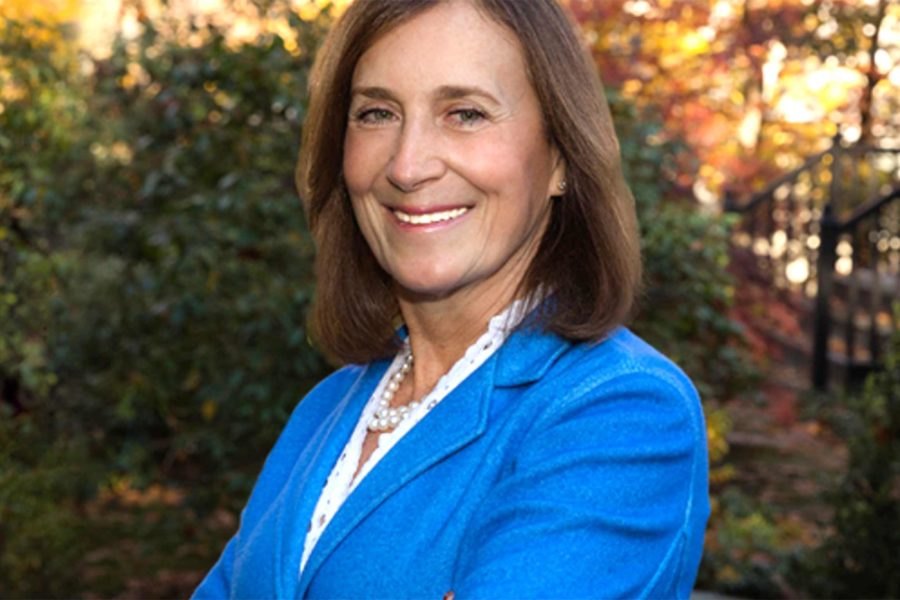Massachusetts State Treasurer Deborah B. Goldberg has dedicated her public service career to closing the financial understanding gap. Her reason? In order to create greater economic growth across the state.
When the former businesswoman was elected as state treasurer in 2015, she established the new Office of Economic Empowerment. It was a first of its kind.
Goldberg has also created programs and workshops for students and their families looking to finance college, women seeking higher pay, and individuals from underserved groups entering the workforce (of the latter, other local, but unrelated, groups with similar goals include The Pioneer Valley Workers Center and CommonWealth Kitchen).
As incoming president of the National Association of State Treasurers, Goldberg now has the opportunity to spread her initiatives nationwide.
Goldberg recently sat with us to chat. We talked about how wage equality for women and minorities creates economic stability and how greater financial knowledge can impact families. She also shared that Massachusetts plans to create better educational pathways for our future generation.

Exhale: Why was it important for you to establish the Office of Economic Empowerment in Massachusetts?
Deborah B. Goldberg:I felt strongly about developing financial literacy because of its deep connection to financial stability and security, and economic stability and security.
As I questioned other state treasurers, both Republican and Democrat, I found that it was, at the time, being looked at by a treasurer from Nashville. He was extremely excited that I was focused on giving people the financial skills they need to survive.
I also found that had people had more knowledge and understanding before the subprime mortgage crisis, they would have been less likely to think it was going to be easy to finance a home if the value of their house declined.

Why is wage equality necessary for greater economic growth in Massachusetts?
Research shows that having more women and people of color, and giving them opportunities and the wages they need, makes organizations far more profitable and stable.
In addition, when you have more than half of the population not achieving what they need to achieve, what they deserve to achieve, and yet carrying the same amount of debt that everyone else carries, you are creating a paradigm of lack of capacity to create economic growth.
Through EqualPayMA.com, women can sign up for salary negotiation workshops, both in-person and online.

What other opportunities are available through the Office of Economic Empowerment for women?
We created the Women in Finance Fellowship four years ago. The financial services industry has been abysmal in both the hiring of women and in ensuring they succeed.
Our mentorship program places women in different areas of the treasury office. It offers exposure to financial service firms in Boston and in federal government. It’s been an extremely positive experience for the cohorts and in helping women stay in fields that are going to enumerate them as much as men.
We also have an extremely robust internship program. People of color and women know there are no barriers to working in my office.

How are you addressing the costs of education and student debt for young people and their families?
In Massachusetts, we are our brains. That is our resource, and yet we are not able to get kids through the educational pipeline in a timely fashion without inundating them with too much debt. That is harming our economic growth in the state. Companies will start here, but they leave because they need a workforce with some sort of post-secondary education.
In three and a half years, we’ve reached over 40,000 high school students, in both public and some special needs schools. We’ve given them experiential learning about living costs and budgeting through simulated “day in the life” programs.
The outtakes with all the kids is extremely impactful. One senior student told me her parents told her to just take out college loans and worry about them later. After having done that experiential program, she said, “I am going to worry about the loans.”

How should families prepare today when thinking ahead to finance their children’s education?
Statistics show that a family can save as little as $500 and their child is more likely to graduate, go to college or get vocational training. They are also less likely to have debt.
Beginning on Jan 1, 2020, our new college savings plan is going state-wide. Every newborn, either adopted or born in Massachusetts, will receive a seeded college savings account with wrap-around financial literacy services.
This will be at no cost to the taxpayer, funded through our private-public partnerships. It will start kids on the pathway to savings, avoidance of debt and achieving education they need to succeed.



 4 min read
4 min read

